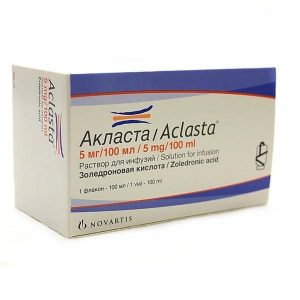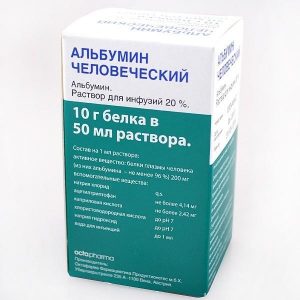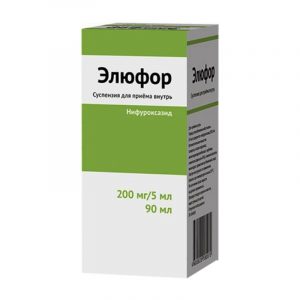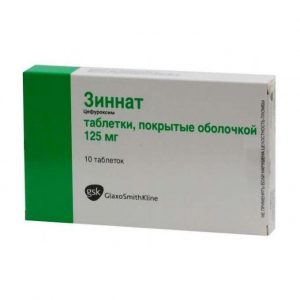Description
Pharmacological action
Otrivin Express (oxymetazoline) – a sympathomimetic, acting on alpha – adrenergic receptors of the nasal mucosa.
Has a vasoconstrictor effect, reducing swelling of the nasopharyngeal mucosa.
When applied topically to the inflamed mucous membrane of the nasal cavity, it reduces swelling and discharge from the nose.
Restores nasal breathing, eliminates swelling of the mucous membrane of the nasal cavity, helps to restore aeration of the paranasal sinuses of the nasal cavity, middle ear cavity, which reduces the likelihood of bacterial complications (sinusitis, sinusitis, otitis media).
With topical intranasal administration at therapeutic concentrations, oxymetazoline does not have a systemic effect, does not irritate, and does not cause hyperemia of the nasal mucosa.
The drug takes effect after 25 seconds, the duration of action lasts up to 12 hours.
Indications
Symptomatic treatment of nasal congestion in acute respiratory diseases with rhinitis (runny nose), acute allergic rhinitis, hay fever, sinusitis, eustachitis, otitis media (to reduce swelling of the nasopharynx).
To facilitate the outflow of secretions in diseases of the sinuses.
Preparing the patient for diagnostic procedures in the nasal passages.
Contraindications
Hypersensitivity to the drug components, transfenoid hypophysectomy, brain surgery, anesthesia, and atrophic rhinitis, age up to 12 years.
Precautions:
Increased intraocular pressure, hypertension, hyperthyroidism, diabetes mellitus, pheochromocytoma, porphyria, prostatic hyperplasia, diseases of the cardiovascular system. Caution is advised in the treatment of patients receiving MAO inhibitors at this time or receiving them within the previous 2 weeks, tri- and tetracyclic antidepressants, as well as other drugs that increase blood pressure.
If you have one of these diseases, be sure to consult your doctor before taking the drug.
Pregnancy and lactation:
Otrivin Express is contraindicated during pregnancy due to the potential systemic vasoconstrictor effect.
During the period of breastfeeding, the drug should be used only after a careful assessment of the ratio of benefits and risks for the mother and the fetus, it is not allowed to exceed the recommended dosage.
Special instructions
Caution: increased intraocular pressure, arterial hypertension, hyperthyroidism, diabetes mellitus, pheochromocytoma, porphyria, prostatic hyperplasia, diseases of the cardiovascular system.
Caution is advised in the treatment of patients receiving MAO inhibitors at this time or receiving them for the previous 2 weeks, tri- and tetracyclic antidepressants, as well as other drugs that increase blood pressure. If you have one of these diseases, be sure to consult your doctor before taking the drug. Contraindicated during pregnancy due to a potential systemic vasoconstrictor effect.
During breastfeeding, the drug should be used after a careful assessment of the ratio of benefits and risks for the mother and the fetus, it is not allowed to exceed the recommended dosage. Do not use continuously for more than 7 days without consulting a doctor. Prolonged or excessive use of the drug can cause tachyphylaxis, a rebound effect, and atrophy of the nasal mucosa. Avoid contact with the product in the mouth, eyes, or around the eyes.
Eye contact may cause visual impairment. In order to avoid the spread of infection, it is necessary to use the drug individually.
The use of the drug Otrivin Express in therapeutic doses does not affect the ability to drive vehicles and mechanisms. With the development of adverse reactions, caution is advised when performing actions requiring an increased concentration of attention and speed of psychomotor reactions.
Composition
Per 1 ml:
Active ingredient:
Oxymethazoline hydrochloride 0.5 mg
Excipients:
Sorbitol 14.0 mg,
sodium chloride 5.5 mg,
castor oil hydrogenated hydrogenated hydrogenated hydrogenated hydrogen phosphate dihydrate 2.0 mg,
levomenthol (menthol) 2.0 mg,
cineole (eucalyptol) 1.5 mg,
disodium edetate dihydrate 0.5 mg,
benzalkonium chloride 50% solution 0.2 mg (in terms of benzalkonium chloride 0.1 mg),
sodium hydrogen phosphate dodecahydrate 0.1 mg,
purified water to 1.0 ml.
Dosage and Administration
Intranasally.
Adults and children over 12 years of age: 1 injection in each nasal passage 1-2 times a day.
Do not use more than twice a day.
Before first use, spray the nasal spray with a few taps until the drug is evenly distributed.
Side effects
Classification of the frequency of adverse reactions: very often – more than 1/10 prescriptions (> 10%) often – more than 1/100, but less than 1/10 prescriptions (> 1%, but <10%) infrequently - more 1/1000, but less than 1/100 appointments (> 0.1%, but <1%) rarely - more than 1/10000, but less than 1/1000 appointments (> 0.01%, but <0.1%) is very rarely, less than 1/10000 appointments (<0.01%). Disorders of the nervous system: rarely – headache, insomnia, sedation, anxiety, irritability very rarely – anxiety, drowsiness. Gastrointestinal disorders: rarely – nausea. Disorders of the respiratory system, chest and mediastinal organs: often: nosebleeds, dry nasal mucosa, discomfort from the nasal mucosa, sneezing. Uncommon: dry mouth, stomatitis, dry throat, sore throat. Disorders of the heart: rarely – increased blood pressure, palpitations, tachycardia. Disorders of the skin and subcutaneous tissue: rarely – exanthema, itching. General disorders and disorders at the injection site: very rarely – fatigue. Allergic reactions: rarely – systemic allergic reactions (angioedema of the tongue, throat, lips and face). If any of the side effects indicated in the instructions are aggravated, or you notice any other side effects not listed in the instructions, inform your doctor. Overdose of In case of an overdose of oxymetazoline, the clinical presentation is characterized by mydriasis, nausea, cyanosis, fever, tachycardia, cardiac arrhythmia, cardiac arrest, arterial hypertension, pulmonary edema, shortness of breath, mental disorders, hallucinations, convulsions. Symptoms associated with inhibition of central nervous system functions, including drowsiness, fever, bradycardia, shock-like hypotension, apnea, and loss of consciousness, may also occur. Non-selective a-adrenergic antagonists, in particular phentolamine, can be used to lower blood pressure. In severe cases, intubation and mechanical ventilation may be required. In case of moderate or severe overdose due to accidental oral administration, activated charcoal and sodium sulfate (laxative) are prescribed, and after a significant overdose, gastric lavage is prescribed. Symptomatic therapy is indicated. The use of vasopressors is contraindicated. Active ingredient Oxymethazoline pharmacy pharmacy without pharmacy package lekarstvennaja form spray nazaln y




